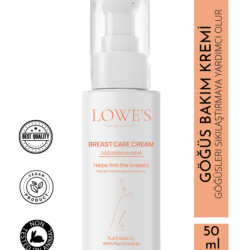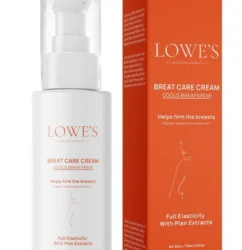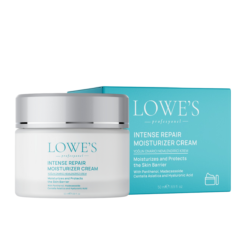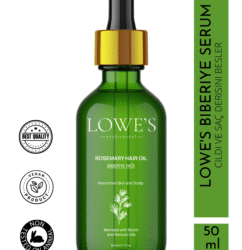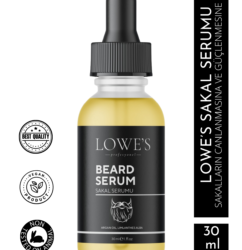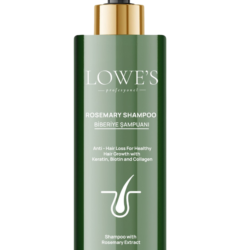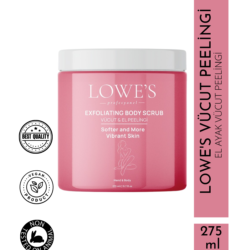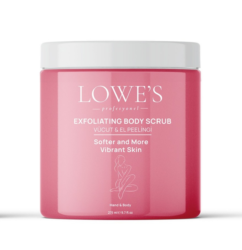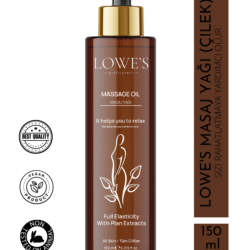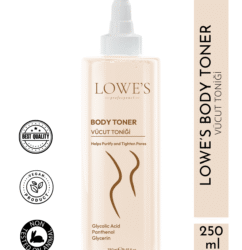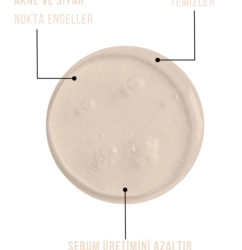Daily Skincare Routine with Lowe’s Products
Introduction
The skin is the mirror of beauty and health, and maintaining it requires a complete daily routine that combines cleansing, hydration, and protection. At Lowe’s Natural Products, we have designed a daily care plan based on our specialized products to give you fresh, healthy, and radiant skin all day long.
The daily routine is divided into two essential steps: a morning routine to protect and prepare your skin for the day, and an evening routine to repair and renew it while you sleep.
Morning Routine: Protection & Radiance All Day
-
Cleanser: Start the Day with Clear Skin
-
Removes dirt and oils accumulated during sleep.
-
Maintains skin balance without causing dryness.
-
Prepares the skin for the next steps in your routine.
-
Toner: Refresh & Balance
-
Restores the skin’s natural balance after cleansing.
-
Gently tightens pores and provides a refreshing sensation.
-
Enriched with botanical extracts to soothe the skin.
-
Moisturizing Cream: The Basis of Healthy Skin
-
Provides deep and long-lasting hydration.
-
Maintains skin elasticity and softness.
-
Forms a protective barrier against external factors.
-
Vitamin C Serum: Glow & Protection
-
Acts as a powerful antioxidant, protecting against pollution and UV damage.
-
Helps even out skin tone and reduce pigmentation.
-
Delivers a natural glow that lasts throughout the day.
-
Sunscreen: The Final Protective Shield
-
Protects against UVA/UVB rays.
-
Prevents dark spots and premature aging signs.
-
Lightweight texture, suitable for daily use and under makeup.
Result: Soft, protected, and radiant skin all day long.
Evening Routine: Repair & Renewal While You Sleep
-
Cleanser: Deep Cleansing After a Long Day
-
Removes makeup residues, dust, and impurities.
-
Helps the skin breathe freely.
-
Refreshes the skin and prepares it for night care steps.
-
Toner: Restore Balance & Freshness
-
Prepares the skin to absorb serums and creams.
-
Minimizes the appearance of enlarged pores.
-
Provides comfort after a tiring day.
-
Dark Circle Serum: Specialized Eye Care
-
Reduces dark circles and puffiness.
-
Moisturizes the delicate area around the eyes.
-
Gives a brighter, more youthful look.
-
Spot Serum: Target Pigmentation
-
Works directly on dark spots and sun damage.
-
Helps even out skin tone.
-
Leaves skin clear and uniform.
-
Retinol Serum: Nightly Renewal
-
Boosts cell regeneration and stimulates collagen production.
-
Reduces fine lines and wrinkles.
-
Leaves skin firmer and more youthful.
-
Hydration Serum: A Rich Dose of Softness
-
Contains hyaluronic acid for deep hydration.
-
Prevents dryness overnight.
-
Leaves skin plump and flexible in the morning.
-
Moisturizing Cream: The Final Touch
-
Locks in all previous benefits and maintains hydration.
-
Supports skin repair and regeneration overnight.
-
Provides a soothing, comfortable feeling before sleep.
Result: Renewed, relaxed, and more radiant skin in the morning.
Lowe’s Philosophy in Daily Care
-
Nature at the core: all products are enriched with safe, natural ingredients.
-
Product synergy: designed to work together in harmony for the best results.
-
Simplicity & effectiveness: easy steps that deliver visible results.
Extra Tips for Best Results
-
Stick to your routine every morning and evening.
-
Apply products in the correct order for optimal absorption.
-
Gently massage your skin to stimulate circulation.
-
Don’t forget to drink enough water to keep your skin hydrated from within.
Conclusion
The daily routine with Lowe’s products is not just skincare steps, but a lifestyle that gives you healthy, soft, and radiant skin.
Start your day with a morning routine that protects your skin from external factors, and end it with an evening routine that nourishes and renews it.
With Lowe’s, you’re not just caring for your skin—you’re giving yourself a daily moment of luxury that reflects your natural beauty at its best.


